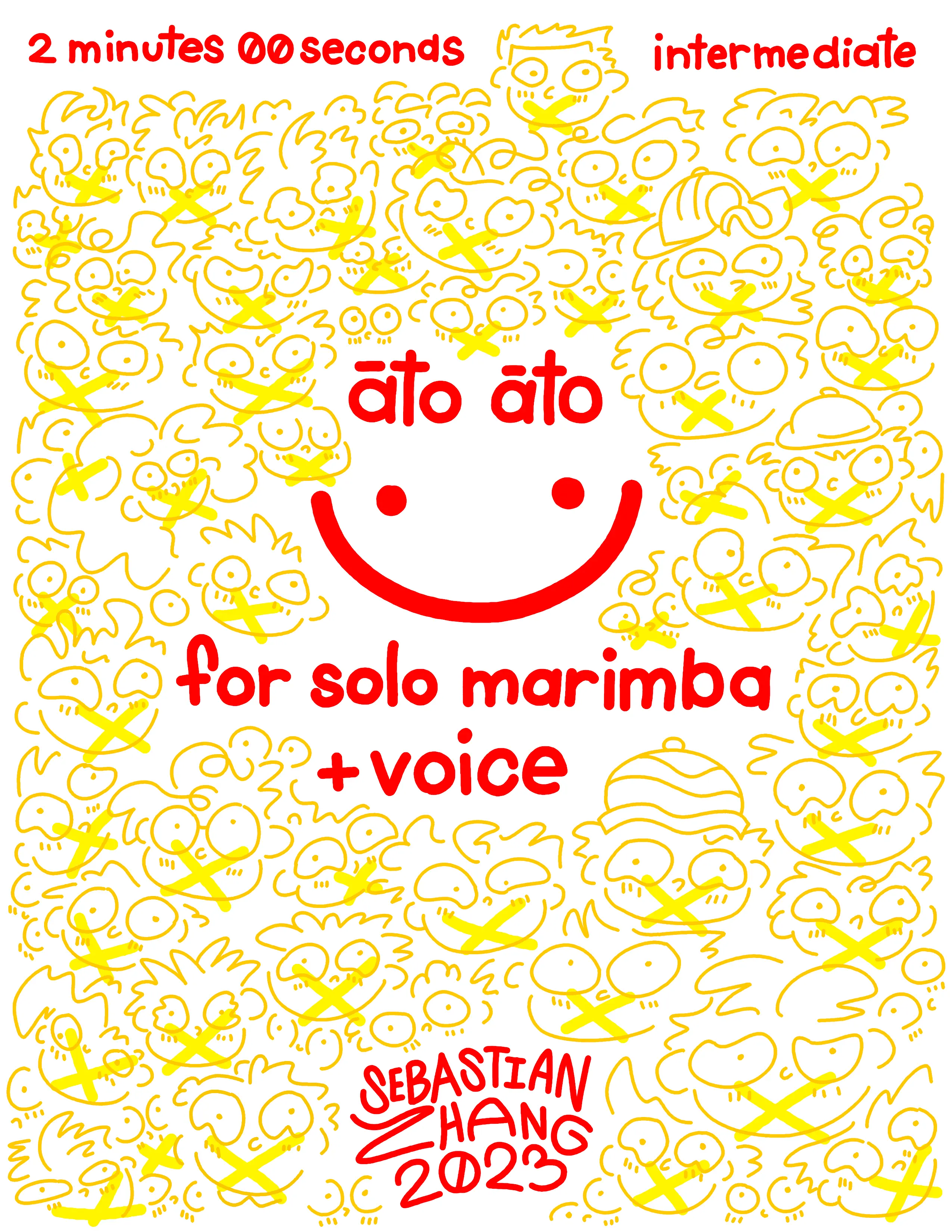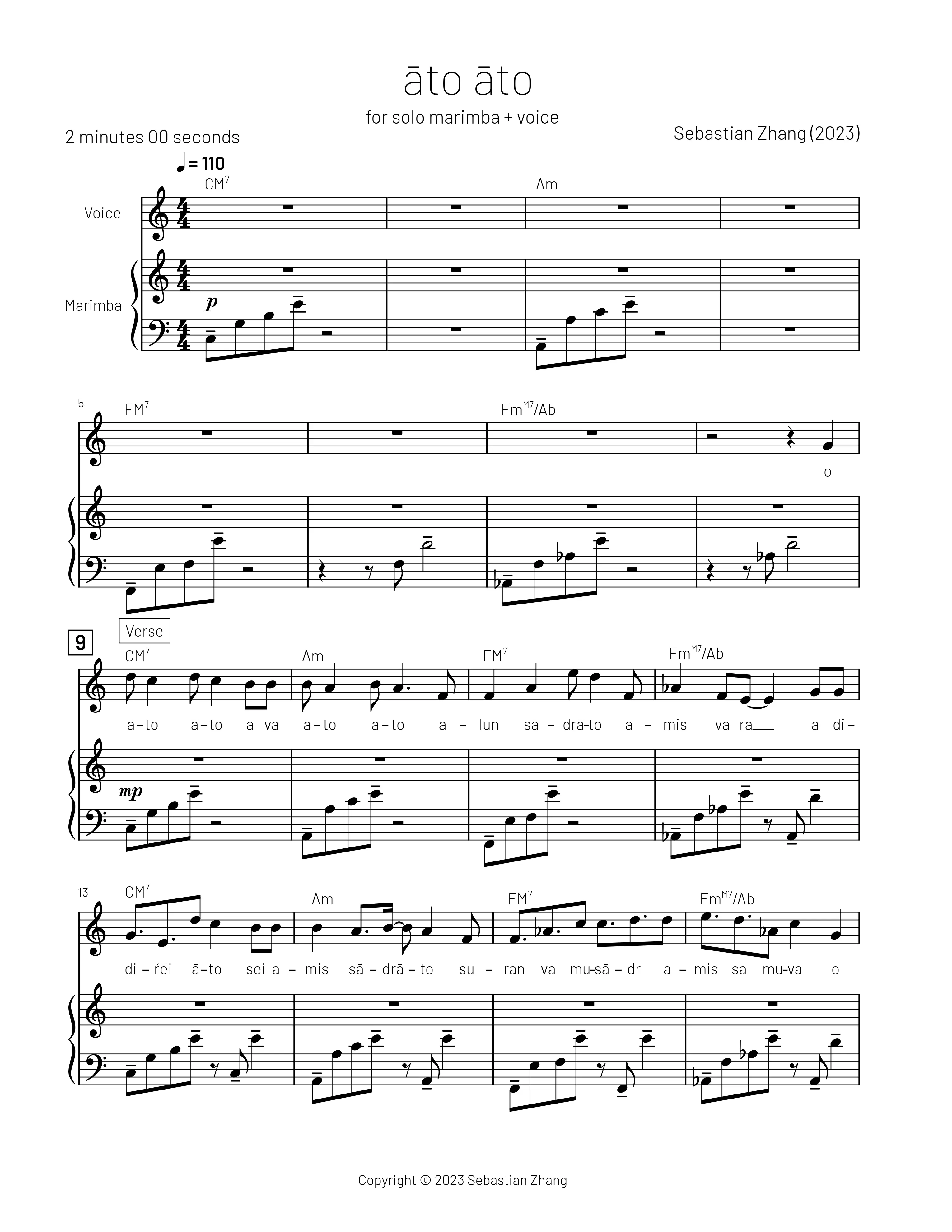āto āto (2023) marimba solo (4-mallet) + voice · 2 minutes · intermediate
The following language resources are an in-depth breakdown of the construction of babā, and are not required for the performance of the piece.
āto āto, or (in English) here here, is written in babā, a constructed language that I created.
babā was constructed to be intentionally unintelligible to audiences, and āto āto is written with that intention.
The text of this piece is centered around the feeling of loneliness, yet is placed under the guise of a cheery folksong. In effect, the singer is subverting an outside "forced happiness" in order to express their true emotions, through a language that they can only understand.
Of particular note is that the word āto in babā is a ideophone—a type of word that expresses action through the sound of the word itself. In this case, āto is intended to evoke the “action” of simply being here.
I feel that it is best to leave the interpretation of the text to the performer.
I have chosen to make the translation of the poem and the overall construction of babā publicly available, because it is my hope that this piece could help spark interest in hobby linguistics, an artform that I am truly passionate about.
Additionally, I think that it is important for the performer to understand the meaning of each individual word that they are singing.
However, when performing this piece, I ask that the translation of the text is not made easily available to the audience. To put it bluntly: this defeats the point of the piece.

